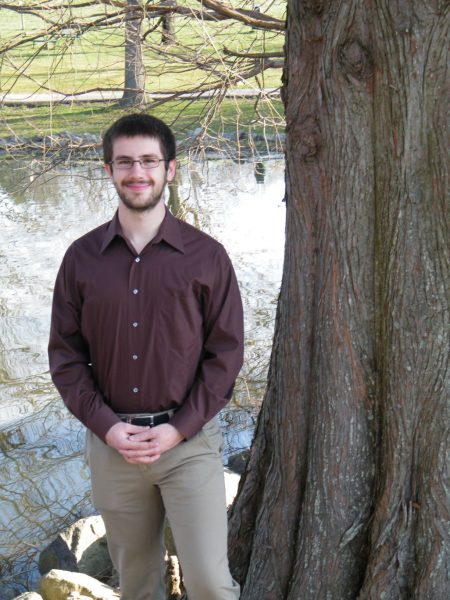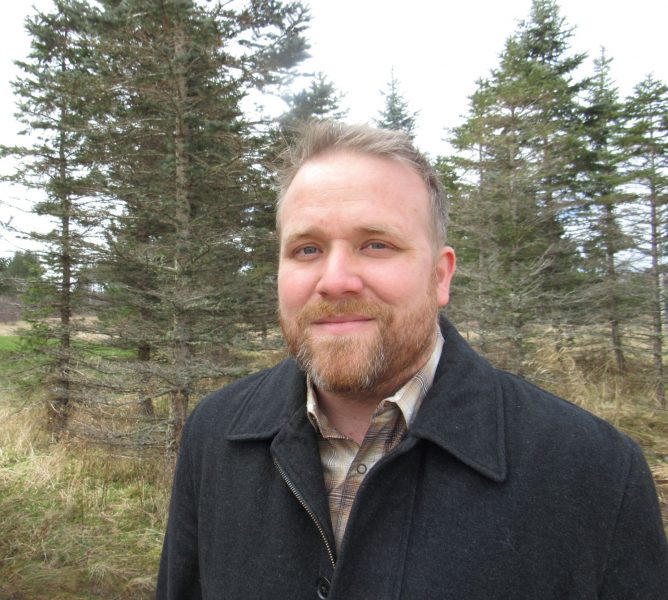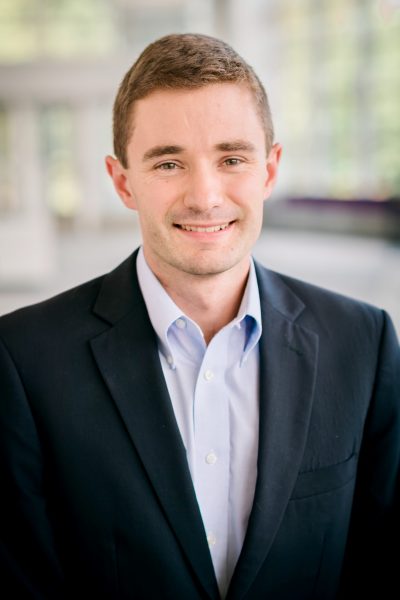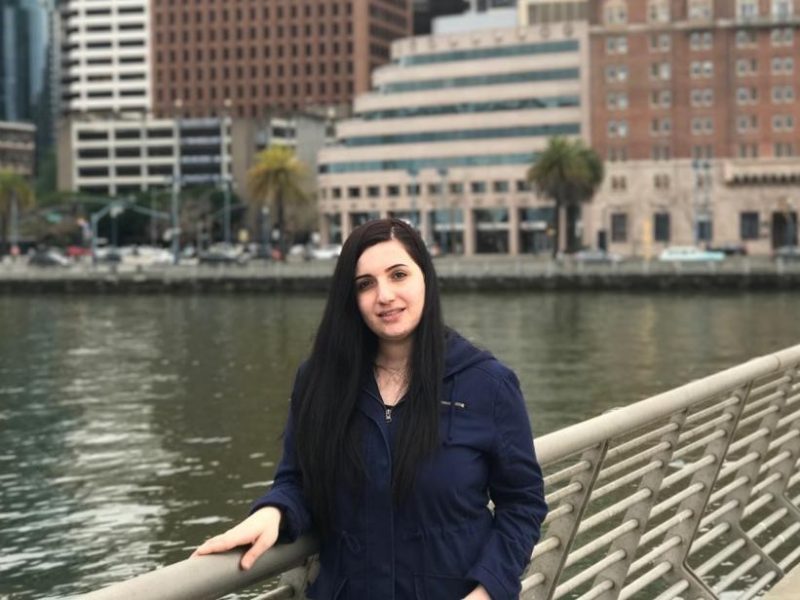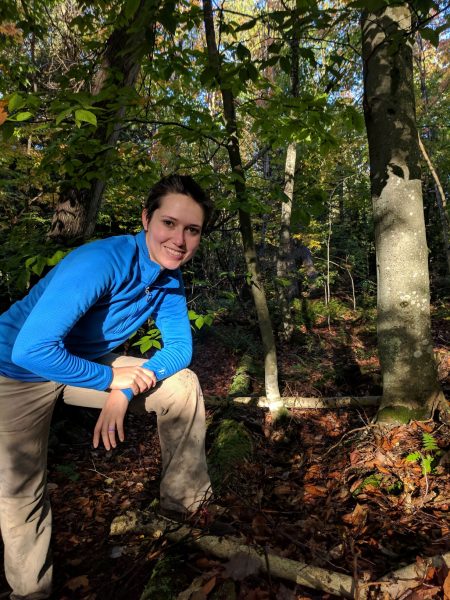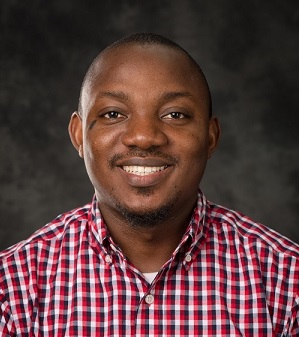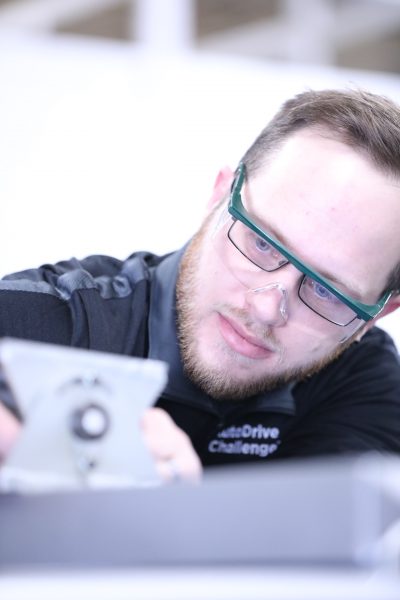
I am a PhD candidate in the mechanical engineering – engineering mechanics program. I have been fortunate during my graduate studies to have served as a graduate teaching assistant for the SAE AutoDrive Challenge, working with an interdisciplinary team of graduate and undergraduate students on the development of an autonomous vehicle. Work with this competition has afforded me the use of an autonomous Chevrolet Bolt as a platform to perform research activities relevant to my dissertation. My research has focused on path planning and control of autonomous vehicles performing obstacle avoidance on low friction surfaces, an area that is essential for widespread adoption of autonomous vehicle technology. I have developed vehicle steering controls which react to un-detected ice on the road, allowing a vehicle to maintain control when traction is lost. I have also worked on optimal paths for obstacle avoidance when the friction surface is known. Finally, I have worked on stochastic methods for representing friction surfaces in simulation which improve correlation between a simulated vehicle model and hardware test platforms.
I would like to thank my co-advisors, Dr. Darrell Robinette and Dr. Jeremy P. Bos for their support and guidance during my pursuit of the PhD. I would also like the thank the Dean Awards Advisory Panel and the graduate school for awarding me the finishing fellowship. This award will allow me to focus my efforts on completing my dissertation document and preparing for my defense in the Summer of 2021.
